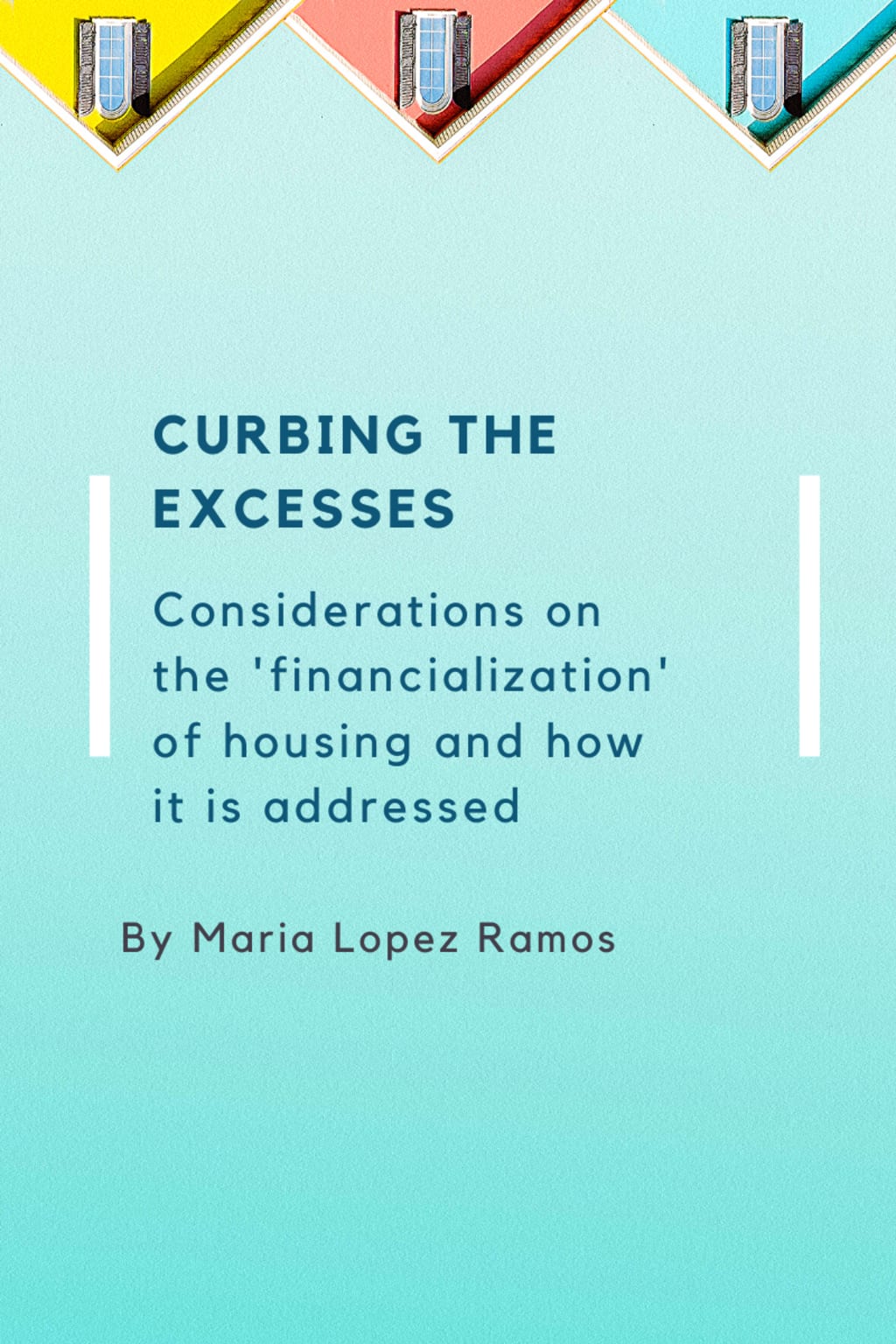Curbing the excesses: Considerations on the 'financialization' of housing and how it is addressed
Attempt No. 1

Disclaimer: This short essay was written as an assignment for an online course (my favorite activities during quarantine time). The goal was analyzing briefly a UN special report on housing and Human Rights (either agreeing or not with the contents). Hopefully we'll have time in the future for further research on the topic.
You can find the introducing statement for said report here.
The Report of the Special Rapporteur on adequate housing as a component of the right to an adequate standard of living and on the right to non-discrimination in this context, is full of relevant information; it is naturally the product of the work of an organism in charge of representing an external overview on the internal issues that in aggregate become world problems. However, at the time of totally agreeing or disagreeing with the statements given, it is important to have in mind the optics that economists use when reviewing the charts of an indicator: one might say that even though you do not disagree with the most of the items therein, completely agreeing would be like looking at a nominal value without thinking of inflation.
The first important thing to notice before getting into deeper considerations is, that given the issue being addressed in the report, the so called "financialization of housing" is clearly a financial issue, by nature involves psychological aspects and depends more on the hues of human behavior at a moment of time than on strictly numerical or legal issues; nonetheless, the latter are the most visible parts of the phenomenon assessed.
In this manner, I agree that curbing the excesses of the capitalization and sometimes exploitation of something that is a primal instinct, such as getting a secure place to live, is the key to end with the lack of dignity in the lives of many people due to a housing problem. This is very well highlighted in the report when it somehow congratulates measures like the taxation of luxury properties (because they go beyond the use of the adjective "necessary"), and also encourages the correct allocation of the resources obtained through those taxes into helping new homeowners with low to medium purchase power to obtain their first house. Both are often underestimated measures that could be better implemented around the world.
Likewise, it is appropriate as the report suggests, that both the legal framework in force and the supervision on the construction and development of new real estate investments be strengthened, no matter who the investor is or any collateral conditions. Plus, the fact that governments are responsible for the respect of Human Rights over any economical benefits of an investment, cannot be taken for granted since in the end that is indeed one of their main purposes. However, even bearing all the above mentioned in mind, I disagree with the too broad belief that puts regulation of how markets work as the ultimate solution to the problem of housing, when some problems such as a bad leasing (often not written) contract or the behavior issues of certain individuals that never get to be treated by the rest of the social institutions of the state (if any), are also a cause of homelessness; both aspects clearly go beyond financial institutions and they need to be worked by integrating all essential entities of the state apparatus besides including cultural elements as well.
On the other hand, it is understandable to think of said financialization of housing as the origin of the paradigm in which proper housing is undermined as a human right. But, what happens if there is also an excess of thinking of the other side of the coin? Namely if a way too harsh shift on the paradigm mentioned in the report occurs, how would it be living in a world in which it would only be possible to see a house as a basic shelter and real estate would not have the economic value to be considered an asset? Wouldn't that be discouraging for the individuals that are not rich, but work everyday to be able to own a house of their own (exerting their right to quality of life) and inherit a symbol of wealth to their children? Wouldn't that also be conflicting with the ideas of private property and progress that founded the now ruling capitalist system itself?
Of course the answer to those questions is complex and because of that, they could only be answered over the years and with so much more information at hand. Probably at that point, we will be able to make an essay on the results, way after being obtained (perhaps this happens after the 2030 goals expire). For the moment it would only be appropriate to remark that balance should not be abandoned on the addressing of certain topics such as housing.
Finally it is important to bring more attention to education (which is barely highlighted in the report) as a key element to solve the problem of abuse of power that may arise in the real estate market, even when regulations exist. A part of the Special Rapporteur’s statement says that: "When housing prices skyrocket, low and sometimes even middle-income residents are forced out of their communities by high rent or mortgage costs. When housing prices plummet, residents face mortgage foreclosure and homelessness". But the last bubble we experienced showed that those trends and facts remarked are not completely random and even less considering that the prices in the end will be driven by demand. The decisions of uninformed buyers build the increase in the price in a more proportional way than the altered budgets a corrupt contractor may have; and that rule of thumb could be applied to the situation in which there are illegal occupations of lands that are not suitable to be considered in practice, a home. So even if this does not mean that governments should not be punishing infringements on the policies to develop a business or focusing on the protection of little investors, (without forgetting about some help with the precarious conditions in which many people live); maybe more attention to education would make a difference in how the actors involved interact.
About the Creator
María López Ramos
BA in International Studies.
Fashion Entrepreneur.
Forever Dance Student.
Enthusiast of way too many topics.
IG: @mariedesolea






Comments
There are no comments for this story
Be the first to respond and start the conversation.